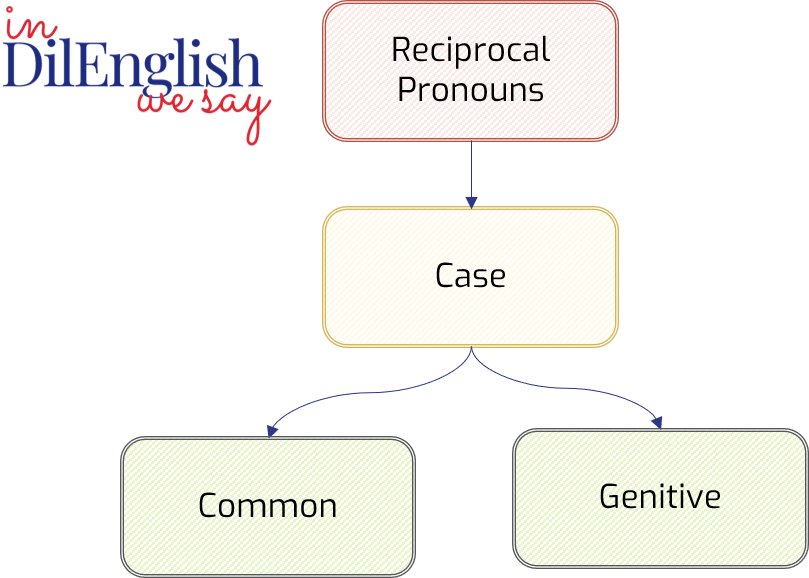Reciprocal pronouns are the group pronouns each other and one another.
They express mutual action or relation. The subject to which they refer must always be in the plural.
“I didn’t really know him,” he thought, “and he didn’t know me; but we loved each other.” (Galsworthy)
We haven’t set eyes on one another for years. (Priestley)
Each other generally implies only two, one another two or more than two persons:
He had never heard his father or his mother speak in an angry voice, either to each other, himself, or anybody else. (Galsworthy)
Seated in a row close to one another were three ladies — Aunts Ann, Hester, and Julie (short for Julia). (Galsworthy)
It must be mentioned that this distinction is not always strictly observed:
I should have been surprised if those two could have thought very highly of one another. (Dickens)
Case
Reciprocal pronouns have two case forms: Common & Genitive cases.

Girls banged into each other and stamped on each other’s feet. (Mansfield)
The common case of reciprocal pronouns is used as an object.
The men were not grave and dignified. They lost their tempers easily and called one another names… (London)
Elizabeth and George talked and found each other delightful. (Aldington)
The genitive case of reciprocal pronouns may be used as an attribute.
At first it struck me that I might live by selling my works to the ten per cent who were like myself; but a moment’s reflection showed me that these must all be as penniless as I, and that we could not live by, so to speak, taking in one another’s washing. (Shaw)
Not until moon and stars faded away and streaks of daylight began to appear, did Meitje Brinker and Hans look hopelessly into each other’s face. (Dodge)
Function
Reciprocal pronouns preceded by a preposition are used as a prepositional indirect object:
They look at one another for a moment. (Dickens)
…in silence they stared at each other. (Saxton)
